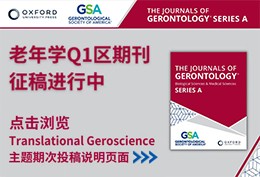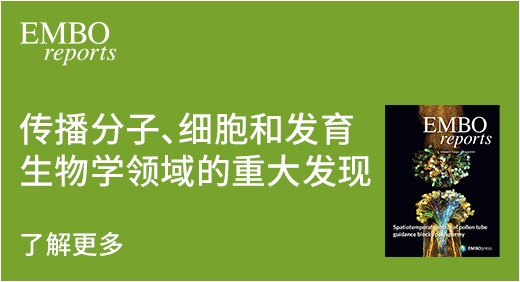-
Grandchildren’s spatial proximity to grandparents and intergenerational support in the United States (by Olivia Healy, Rachel Dunifon) Demographic Research (IF 2.1) Pub Date : 2025-06-03
Olivia Healy, Rachel DunifonBackground: Grandparents regularly spend time with their grandchildren and may also depend on their adult children for help as they age. These patterns suggest that many family members live close enough to one another to provide in-person assistance. However, empirical evidence on grandparent–grandchild proximity and intergenerational transfers remains limited. Objective: We measure grandchild–grandparent
-
People, Rights, and Choices: Keeping the Promise of the ICPD Programme of Action Alive Studies in Family Planning (IF 1.9) Pub Date : 2025-06-02
Saumya RamaRao, Priscilla Idele, Dakshitha Wickremarathene -
Pretending to be Domestic Workers to be ‘Legal’. Uneven Performances of Deservingness Within Italy’s Labour Migration Regime Journal of Immigrant & Refugee Studies (IF 1.3) Pub Date : 2025-06-02
Fabio De Blasis -
How do fathers and mothers allocate their leisure time? Patterns and inequalities across 13 European countries (by Anna Martinez Mendiola) Demographic Research (IF 2.1) Pub Date : 2025-05-27
Anna Martinez MendiolaBackground: Spending time on leisure is widely recognised as a significant source of enjoyable psychological experiences in daily life. However, cross-national studies on time use and gender inequalities frequently overlook the study of leisure. Objective: This study has two principal objectives. First, it presents estimates of leisure time among parents, providing detailed insights into how fathers
-
The surge in living alone among young and middle-aged adults: A decomposition analysis of the rise in one-person households in Germany, 1991 to 2021 (by Anne-Sophie Oehrlein, Christof Wolf) Demographic Research (IF 2.1) Pub Date : 2025-05-28
Anne-Sophie Oehrlein, Christof WolfBackground: Worldwide, the number of people living in a one-person household (OPH) is rising, and young and middle-aged adults play an essential role in this trend. Germany has one of Europe’s highest rates of OPHs. Due to the country’s unique sociohistorical background, this paper looks at a 30-year period to examine how the increase in OPHs among 20–54-year-old men and women has developed since German
-
Fertility differences across immigrant generations in the United Kingdom (by Jiseon Baek, Hill Kulu, Sarah Christison, Francesca Fiori) Demographic Research (IF 2.1) Pub Date : 2025-05-30
Jiseon Baek, Hill Kulu, Sarah Christison, Francesca FioriBackground: Previous studies have investigated immigrant fertility in various European countries, but only a few have compared the fertility rates of women who migrated as children (1.5 Generation), women born in the host society to foreign-born parents (2 Generation), and women born in the host society with one foreign-born and one native-born parent (2.5 Generation). Objective: This study examines
-
An Extension of Migration Effectiveness Indices: Accounting for the Impact of Migration on Population Structure Population, Space and Place (IF 2.6) Pub Date : 2025-05-30
Sechang Kim, Sang‐Il LeeThis study introduces the age‐weighted migration effectiveness index (AWMEI), a new metric that integrates age‐specific variation into a single measure of migration effectiveness. Traditional indices, such as the migration effectiveness index (MEI) and age‐specific MEI (ASMEI), effectively address the first aspect of migration effectiveness—population redistribution—but overlook the second aspect—transformation
-
Do Diaspora Engagement Policies Promote Loyal Ethnic Lobbying? Empirical Analysis of Turkey's Policies and the Lobbying Capacity of its Diaspora in Germany Population, Space and Place (IF 2.6) Pub Date : 2025-05-29
Alfonso Giordano, Laura SparascioThis paper examines how sending governments engage their diasporas for lobbying purposes and the potential outcomes of such efforts. Using Turkey's diaspora in Germany as a case study, we apply an integrated framework combining insights from the diaspora engagement policies and ethnic lobbying literatures to address the question: To what extent is a sending country capable of mobilising its diaspora
-
Does the Labor Force Participation of Married Female Immigrants Decrease in a Low Female LFP Host Country? Evidence From Japan Population and Development Review (IF 4.6) Pub Date : 2025-05-28
Yang Liu, Risa HagiwaraThis study uses large‐scale census data to present some of the first evidence on the labor force participation (LFP) of married female immigrants, focusing on those who migrated from relatively high female LFP home countries to a low female LFP host country (Japan). First, our results indicate that source‐country culture plays an important role in determining female immigrants’ LFP. Both the wife's
-
-
From Students to Movers: Linking Internal and International Migration Trajectories Among Spanish Bachelor's and Advanced Vocational Training Graduates Population, Space and Place (IF 2.6) Pub Date : 2025-05-27
José David Lopez BlancoThe relationship between internal and international migration has traditionally been overlooked in migration research. Seeking to bridge this divide, we examine the cumulative, socioeconomically selective and functionally differentiated nature of youth spatial mobility. Using harmonized microdata from two nationally representative surveys of bachelor's graduates and advanced vocational trainees from
-
Conceptualizing and Measuring Conflict-Related Determinants of Migration Journal of Immigrant & Refugee Studies (IF 1.3) Pub Date : 2025-05-26
Marta Bivand Erdal, Mathilde Bålsrud Mjelva, Andreas Forø Tollefsen -
Efforts in Mainstreaming Gender into Uganda’s Refugee Settlement Policy Approach Journal of Immigrant & Refugee Studies (IF 1.3) Pub Date : 2025-05-26
Beatrice Atim Alupo -
Spatial Dependence of European Immigration Flows Population and Development Review (IF 4.6) Pub Date : 2025-05-23
Mathias Czaika, Heidrun Bohnet, Akira Soto‐NishimuraEurope has emerged as a prime destination for global migration. Although drivers of European migration are well‐researched, the patterns and spatial dynamics of these bilateral migration flows are less understood. This study investigates the spatial clustering of bilateral migration flows to EU destinations, considering factors like geographic and linguistic proximity between origin and destination
-
-
The Effect of Slow-Onset Climate Change on Migration Decisions International Migration Review (IF 2.3) Pub Date : 2025-05-23
Justin Gest, Lucas Núñez, Scott Drinkall, Kapiolani MickyWhat explains why people choose to stay or emigrate in the face of slow-onset climate change? We leverage an original survey of prospective migrants who are exceptionally vulnerable to threats from climate change, but who possess the freedom to legally migrate to another country with relative protection from environmental degradation. Using a conjoint experiment, we assess subjects’ latent preferences
-
Forced Migrants’ Agency in a Life Course Approach—A Conceptual Proposal and Empirical Illustration International Migration Review (IF 2.3) Pub Date : 2025-05-23
Ludger PriesForced migrants live and act under extremely restricted conditions, nevertheless they make their own living. To understand and explain their agency, there are inductive, usually qualitative, approaches like symbolic interactionism or biographical case reconstruction and deductive, often quantitative, methodologies like rational choice and (cap)abilities-aspirations concepts. Integrating elements of
-
Sexual and Reproductive Health and Rights and Global Development Studies in Family Planning (IF 1.9) Pub Date : 2025-05-23
Gilda Sedgh, Susheela Singh, Irum Taqi, Jonathan WittenbergThe ICPD Programme of Action and the Sustainable Development Goals both underscore the essential role of sexual and reproductive health and reproductive rights in development. Despite significant progress on many aspects of sexual and reproductive health and rights (SRHR), challenges remain, and they are exacerbated by rising anti‐rights movements in many countries. At a time when SRHR is under threat
-
The Education Abroad and Income Paradox: A Research Note International Migration Review (IF 2.3) Pub Date : 2025-05-22
Wei LiuYouths of a country seem to be less interested in going abroad when the per capita GDP of the country reaches a certain level. This education abroad and income paradox is supported by data from a number of countries/regions whose education abroad numbers have peaked. A rough value of $30,000 US in per capita income in purchasing power parity terms seems to be the threshold for a country's interests
-
-
Periods of high uncertainty: How fertility intentions in Russia changed during 2022–2023 (by Elena Vakulenko, Dmitriy Gorskiy, Valeria Kondrateva, Ilya Trofimenko) Demographic Research (IF 2.1) Pub Date : 2025-05-20
Elena Vakulenko, Dmitriy Gorskiy, Valeria Kondrateva, Ilya TrofimenkoBackground: We study the change in fertility intentions in Russia during the period of socioeconomic shocks in 2022–2023 resulting from the Russia–Ukraine armed conflict. Objective: Our objective is to identify factors that influence decision-making in a low fertility context during a crisis, including both objective characteristics and subjective assessment of the current situation. Methods: This
-
Issue Information Population, Space and Place (IF 2.6) Pub Date : 2025-05-19
No abstract is available for this article.
-
Global Gender Gaps in the International Migration of Professionals on LinkedIn Population and Development Review (IF 4.6) Pub Date : 2025-05-16
Elizabeth Jacobs, Tom Theile, Daniela Perrotta, Xinyi Zhao, Athina Anastasiadou, Emilio ZagheniThis paper examines gender differentials in the international migration of professionals, and how this varies by country, industry, age, and years of experience. We leverage data from LinkedIn, the largest professional networking website, to construct Immigrant and Emigrant Gender Gap Indexes (iGGI and eGGI). These indexes measure inflows and potential outflows. The findings indicate that, among LinkedIn
-
The Power of Participation and the Co-Production of Knowledge in Migration Research: A Critical Reflection on Methods International Migration Review (IF 2.3) Pub Date : 2025-05-16
Megan Denise Smith, Liana WoolThe rapidly growing field of “Migration Studies” is still grappling with various conceptual and methodological challenges. Pervasive across these are how best to conduct research “with” rather than “on” migrants as its primary object of study. Though it is frequently emphasized that alternative framings in knowledge production based on the lived experiences of migrants are vital in migration research
-
Capitalizing on Population Dynamics 30 Years on from the International Conference on Population and Development Studies in Family Planning (IF 1.9) Pub Date : 2025-05-16
Stuart Gietel‐Basten, Rachel SnowThe world is grappling with a huge array of demographic challenges—ranging from rapid population growth in sub‐Saharan Africa to rapid aging and decline elsewhere—with profound implications for social systems, economic stability, and environmental sustainability. We examine the complex interplay of demographic diversity and other global megatrends, emphasizing the urgent need for policies that prioritize
-
The cybernetic border: Drones, technology, and intrusion By Iván ChaarLópez, Durham: Duke University Press. 2024. pp. 248 International Migration (IF 1.6) Pub Date : 2025-05-16
Özgün Erdener TopakClick on the article title to read more.
-
-
The Longitudinal Relationship Between Acculturation and Alcohol Use Among Immigrant Adolescents in Europe International Migration Review (IF 2.3) Pub Date : 2025-05-15
Krzysztof CzadernyThis study examines the relationship between alcohol use among immigrant adolescents living in Europe and their sense of national belonging as well as the ethnic composition of their friendship networks, contributing to the broader discussion on the healthy immigrant effect. To date, the majority of longitudinal studies examining the relationship between acculturation and alcohol use have been conducted
-
Are Visa-Based Dispersal Policies Effective in Attracting and Retaining Skilled Migrants in Rural Australia? International Migration Review (IF 2.3) Pub Date : 2025-05-15
Dagamra Laukova, Aude Bernard, Tomasz Zając, Anthony Kimpton, Neil Argent, Thomas SiglerAustralia offers regional visa schemes for skilled migrants who reside in nonmetropolitan Australia for a minimum of 2 years to alleviate nonmetropolitan depopulation and skills shortages. To assess the efficacy of this program in attracting and retaining migrants, we apply survival analysis to administrative longitudinal microdata from the Person Level Integrated Data Asset linked to census data from
-
-
Then and Now: Romanian Returnees Contemplating Future Migration International Migration Review (IF 2.3) Pub Date : 2025-05-15
Laura Moroşanu, Monica ȘerbanDespite the emerging consensus that return does not necessarily bring an end to mobility, returnees’ future migration aspirations have received limited attention. Our article contributes to this under-researched area by examining how return migrants view future migration, based on 97 in-depth interviews with Romanian returnees from four European countries. We focus on young, working-age returnees,
-
“I Was Confident From the Bottom of My Heart That I Will be Fine With These Medicines”: Qualitative Analysis of Decision‐Making Around Self‐Managed Abortion Trajectories in India Studies in Family Planning (IF 1.9) Pub Date : 2025-05-15
Caila Brander, Caitlin McKenna, Caitlin Gerdts, Balasubramanian Palanisamy, Anoop Jain, Laura Jacobson, Katherine Key, Sruthi Chandrasekaran, Ruvani JayaweeraWhile the incidence of self‐managed abortion (SMA) in India is well‐documented, why the majority of abortions in India are self‐managed remains largely unanswered. This qualitative study explores factors that contribute to decision‐making about SMA in India. Between January and August 2022, we conducted 43 in‐depth interviews with people who self‐managed abortions across six Indian states, recruiting
-
Assisted return programmes across Europe – Mapping an increasingly obscure landscape International Migration (IF 1.6) Pub Date : 2025-05-15
Lukas M. FuchsAmidst an increasing popularity of Assisted Return (AR) programmes amongst European states, on the one hand, and criticism pertaining to their voluntary and humanitarian nature, on the other hand, this paper maps AR programmes across Europe. It contains a first comprehensive overview of 45 ongoing AR programmes across 27 countries in the European Economic Area (EEA) and outlines their commonalities
-
The Refugee Integration Industry: Stakeholder Power, Market Logic, and the (De)Humanisation of Refugee Labour Population, Space and Place (IF 2.6) Pub Date : 2025-05-14
Mustafa F. Özbilgin, Dimitria Groutsis, Joana Vassilopoulou, Cihat ErbilThis paper theorises the refugee integration industry by examining how institutional configurations and stakeholder arrangements shape labour market integration outcomes for refugees in Germany and Turkey. Drawing on Spender's theory of industrial recipes, we conceptualise the integration industry as a network of public, private and third‐sector actors governed by competing logics of humanitarianism
-
Fertility Differences by Type of Residence Permit Among Female Immigrants in Sweden Population, Space and Place (IF 2.6) Pub Date : 2025-05-14
Erik CarlssonImmigrants’ life circumstances both before and after migration are likely to vary considerably by type of residence permit, which may affect fertility behaviour. Yet, the relationship between permit type and fertility is surprisingly underexplored. This study uses Swedish population register data to examine fertility differences by permit type among female immigrants to Sweden. The study also examines
-
Non‐Survival to Pension Age in Denmark and Sweden: A Sub‐National Investigation Population, Space and Place (IF 2.6) Pub Date : 2025-05-14
Ilya KashnitskyMortality keeps improving even in the most developed countries. Deaths before senior age become more and more occasional and thus are increasingly considered unnecessary and perhaps even avoidable. Denmark belongs to the most developed countries of the world in terms of progress in lowering human mortality levels. Yet there is still much room for large improvements—compared to Sweden, the Danish population
-
Constrained Localism in an Authoritarian Environment: Developments in Solidarity With Displaced Ukrainians in Hungary Journal of Immigrant & Refugee Studies (IF 1.3) Pub Date : 2025-05-14
Margit Feischmidt, Ildikó Zakariás, Violetta Zentai, Csilla Zsigmond, Eszter Neumann -
Locating Men in Sexual and Reproductive Health, Rights, and Justice: Past, Present, Futures Studies in Family Planning (IF 1.9) Pub Date : 2025-05-09
Joe Strong, Ernestina Coast, Malvern ChiwesheSince the International Conference on Population and Development in 1994, global policies, and agenda‐setting milestones have emphasized that universal sexual and reproductive health and rights (SRHR) are unattainable without the meaningful engagement and inclusion of men. Despite this, the field of SRHR continues to struggle with how and in what ways men can and should be included in research, programs
-
A parallel kinship universe? A replication of Kolk et al. (2023) with Dutch register data on kinship networks (by Vera de Bel, Eszter Bokányi, Karsten Hank, Thomas Leopold) Demographic Research (IF 2.1) Pub Date : 2025-05-07
Vera de Bel, Eszter Bokányi, Karsten Hank, Thomas LeopoldBackground: Kolk et al. (2023) use Swedish register data to provide a detailed numerical account of biological kinship. Applying their approach in other countries is challenging due to high data requirements. Objective: We examine whether Kolk et al.’s (2023) findings generalize to another demographically advanced country, the Netherlands, and assess how differences in cohort fertility and divorce
-
Reproductive Autonomy in Fertility Research in Sub‐Saharan Africa: A Scoping Review Studies in Family Planning (IF 1.9) Pub Date : 2025-05-06
Billie de Haas, Allen Kabagenyi, Syifasari DiennabilaFertility research in sub‐Saharan Africa regularly indicates the need to increase women's reproductive autonomy. However, individual, female‐focused conceptualizations of reproductive autonomy tend to neglect the power dynamics both internal and external to couples and other intimate relationships that shape a woman's reproductive autonomy. Furthermore, they disregard the reproductive autonomy of men
-
-
Construction of Fear of the Other as an Electoral Strategy in European Politics: The Case of France and Sweden Journal of Immigrant & Refugee Studies (IF 1.3) Pub Date : 2025-05-06
Kamber Güler -
The Diffusion of Late Fertility Across European Regions (2006–2018) Population, Space and Place (IF 2.6) Pub Date : 2025-05-05
Ingrid Setz, Marie‐Caroline Compans, Éva BeaujouanThe rise in late fertility has emerged as a landmark trend in high‐income countries in recent decades. Yet, its spread has been geographically uneven, which has largely been attributed to socioeconomic contextual factors. Our study introduces a new perspective: the role of spatial diffusion processes. We exploit the regional variation in the increase in the contribution of late fertility rates to total
-
Gender Attitudes, Inequality and Migration Decision‐Making Population, Space and Place (IF 2.6) Pub Date : 2025-05-05
Sandra Morgenstern, Carlos Vargas‐SilvaWe explore the role of gender‐unequal attitudes towards gender norms and perceived structural gender inequality in the migration decision‐making of men and women. Adopting a conceptual model based on possible selves theory, the research employs a contextual social identity perspective concerning gender. We posit that the disparate spheres of inequality experienced by women relative to men should have
-
Future‐Proofing the ICPD PoA: Reproductive Rights in a Low‐Fertility World Studies in Family Planning (IF 1.9) Pub Date : 2025-05-05
Elizabeth Wilkins, Michael Herrmann, Victoria Boydell, Benedict Light, Priscilla IdeleThis commentary discusses the issue of low and declining fertility and the enduring relevance of the 1994 International Conference on Population and Development (ICPD) Programme of Action (PoA) in this new demographic context. We explore low‐fertility trends, patterns, and determinants; fertility in the context of the ICPD PoA; and the recent pushback against sexual and reproductive health, rights
-
Women, Girls, and the Climate Crisis: Advancing Reproductive Health and Rights and Gender Equality in Climate Policies at ICPD+30 Studies in Family Planning (IF 1.9) Pub Date : 2025-05-05
Angela Baschieri, Chiagozie Udeh, Zainab Yunusa, Rachel SnowThe climate crisis will have an impact on everyone, everywhere, affecting both present and future generations, but there are unique ways in which the crisis is impacting the lives of women and girls. This commentary reviews growing evidence on the effects of climate change on sexual and reproductive health and rights (SRHR) and gender‐based violence (GBV), illustrating how the crisis is augmenting
-
Big Data and AI in Sexual and Reproductive Health: A Comment Studies in Family Planning (IF 1.9) Pub Date : 2025-05-05
Mahesh Karra, Saumya RamaRaoBig data and artificial intelligence (AI) have the potential to transform sexual and reproductive health (SRH), offering new avenues to enhance access, efficiency, and personalization in healthcare. AI‐driven tools can provide opportunities to improve service delivery and optimize resource allocation. Through data‐driven insights, healthcare providers can better understand population trends, predict
-
National Goal Trends: Understanding the Goals of U.S. Immigrant Organizations Journal of Immigrant & Refugee Studies (IF 1.3) Pub Date : 2025-05-05
Zayda Sorrell-Medina -
Scapegoating Human Smugglers: How Migrants’ Accounts Challenge the EU’s Dominant Narrative Journal of Immigrant & Refugee Studies (IF 1.3) Pub Date : 2025-05-02
Sara Carrasco-Granger, Rut Bermejo-Casado, Isabel Bazaga Fernández -
Family and social resilience: A scoping review of the empirical literature (by Abrar Bawati, Rense Nieuwenhuis, Merve Uzunalioǧlu, Max Thaning) Demographic Research (IF 2.1) Pub Date : 2025-04-30
Abrar Bawati, Rense Nieuwenhuis, Merve Uzunalioǧlu, Max ThaningBackground: The concept of resilience in familial and social contexts has gained prominence in academic and policy discussions. However, the interplay between family life and social inequalities, and how these relate to each other in the resilience literature, has yet to be documented. Objective: This scoping review addresses this gap by analysing 250 articles published between 1998 and 2023. We compare
-
Navigating Care in the Assemblage of (im)Mobilities: Social Protection Strategies Among Latin American Transnational Families in the Post‐Pandemic Period Population, Space and Place (IF 2.6) Pub Date : 2025-04-30
Laura Oso, Raquel Martínez‐Buján, Paloma MoréThis article analyses the social protection strategies that Latin American transnational families have deployed to cope with the new regime of (im)mobilities that emerged after the COVID‐19 crisis. It reflects on how the pandemic has restructured the articulation of the family welfare model and the migration regime in Spain. From a theoretical point of view, it combines the analysis of family strategies
-
Motivation and Migration Trajectories of EU Citizens on the Move: Repeat and Multiple Migrants in Britain, France, Germany, Italy and Spain Population, Space and Place (IF 2.6) Pub Date : 2025-04-30
Justyna SalamońskaIntra‐European migrants move in different configurations, both in terms of trajectories (one‐off, repeat, multiple) and in terms of motivations (including work, family, education and/or lifestyle). In this article I provide a statistical picture of migrant trajectories and motivations based on a survey of EU internal movers coming from and residing in Britain, France, Germany, Italy and Spain. While
-
Amish fertility in the United States: Comparative evidence from the American Community Survey and Amish population registries (by Lyman Stone, Cory Anderson, Stephanie Thiehoff) Demographic Research (IF 2.1) Pub Date : 2025-04-29
Lyman Stone, Cory Anderson, Stephanie ThiehoffBackground: Quantitative studies of Amish population dynamics have been methodologically constrained by difficulties identifying Amish in national surveys. If Amish could be reliably identified in, for example, the American Community Survey (ACS), researchers could leverage its rich variables to document both demographic outcomes and their social predictors. Objective: Cross-validate two methods for
-
Spatial Segregation, Socioeconomic Disparities and Spatial (in)Justice in a Region of the Mediterranean Population, Space and Place (IF 2.6) Pub Date : 2025-04-29
Alfredo Cartone, Andrea D'Isidoro, Domenica Panzera, Paolo PostiglioneIn recent decades, interest in residential segregation has increased in Southern Europe and the Mediterranean region, primarily due to immigration. This study explores segregation and its potential links to socioeconomic disparities and social (in)justice. The analysis uses standard segregation indicators, along with their spatial counterparts, and employs permutation tests for inference. These methods
-
Return governance and diplomacy between Türkiye and Afghanistan International Migration (IF 1.6) Pub Date : 2025-04-28
Zeynep Sahin-Mencutek, Hidayet Sıddıkoğlu, Soner BarthomaThere is growing scholarly and policy interest in understanding how destination and transit countries develop return migration policies and collaborate with origin countries. This study investigates the dynamics, drivers and outcomes of the collaborative process between Turkish and Afghan authorities in governing the return of Afghan migrants. Drawing on the concept of return diplomacy, derived from
-
Sociodemographic variation in family structures and geographic proximity between adult children and parents in Europe (by Saverio Minardi) Demographic Research (IF 2.1) Pub Date : 2025-04-25
Saverio MinardiBackground: Family structures shape caregiving dynamics and are considered key drivers of inequality. While research often focuses on partners and children, recent studies highlight the role of grandparents and parents of adult children in shaping informal labor demands. However, sociodemographic differences in multigenerational structures remain understudied. Most research focuses on multigenerational
-
Revitalizing the ICPD Programme of Action on the International Development Agenda: Toward a Path Forward for Reproductive Health and Rights in Troubled Times Studies in Family Planning (IF 1.9) Pub Date : 2025-04-25
Andrzej KulczyckiSince the 1994 International Conference on Population and Development (ICPD), there have been notable improvements in reproductive health and rights. However, these overall gains obscure deep inequalities, and recent setbacks during and after the COVID‐19 pandemic highlight the fragility of this progress. The reproductive health agenda is extensive yet remains underfunded and underperforming. Careful
-
Immigration realities: Challenging common misperceptions By Ernesto Castañeda & Carina Cione, New York: Columbia University Press. 2024. pp. 368 International Migration (IF 1.6) Pub Date : 2025-04-25
Recep BaydemirClick on the article title to read more.
-
Walk the Talk: The Unfinished and Urgent Task of Revising Top‐Line Family Planning Indicators, 30 Years After ICPD Studies in Family Planning (IF 1.9) Pub Date : 2025-04-24
Jamaica Corker, Michelle Weinberger, Aisha N.Z. Dasgupta, Elizabeth A. SullyThe 1994 International Conference on Population and Development transformed the family planning (FP) field. Yet, three decades later, global FP monitoring remains anchored in the same core indicators: contraceptive use, unmet need, and demand satisfied. Despite decades of well‐established critique, these measures have seen little substantive revision. As the global community looks to 2030 and beyond
-
Estimating Incidence of Induced Abortion and Unintended Pregnancy Among Women in Refugee Settlements in Uganda Studies in Family Planning (IF 1.9) Pub Date : 2025-04-24
George Odwe, Peter Kisaakye, Francis Obare, Yohannes Dibaba Wado, Bonnie Wandera, Stephanie Küng, Caitlin Rich, Margaret GiorgioEstimates of the incidence of induced abortion and unintended pregnancies in refugee settings are lacking, limiting efforts to improve sexual and reproductive health services. We adapted the abortion incidence complications method to estimate the incidence of induced abortion and unintended pregnancy among women aged 15–49 years in refugee settlements in Uganda. We draw data from a survey of 102 health


















































 京公网安备 11010802027423号
京公网安备 11010802027423号